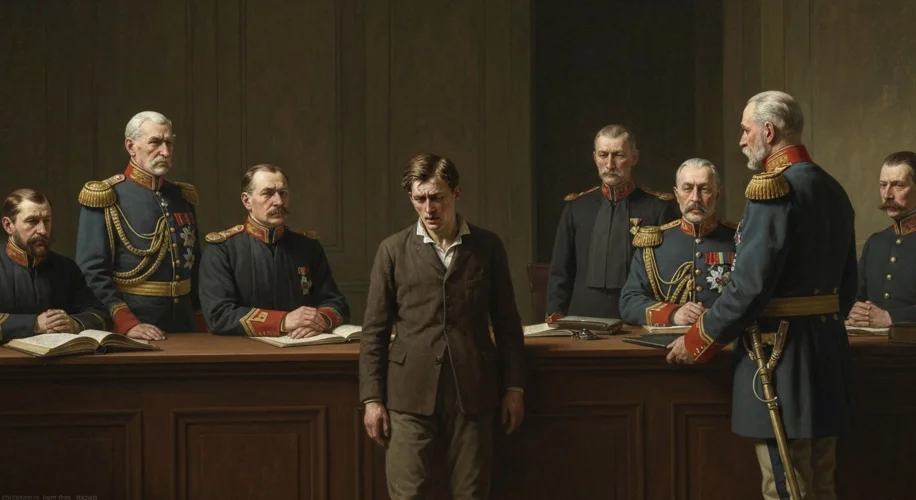In the heart of 19th-century Prussia, a society forged in discipline and military might, the call to arms was not merely a civic duty but a sacred obligation. For young men, the mandatory conscription into the formidable Prussian army was a rite of passage, a commitment etched into the very fabric of their lives. Yet, for some, this path was one of evasion, a desperate attempt to slip through the iron grip of the state. What awaited those who dared to ignore the summons?
The Prussian military system, particularly after the Napoleonic Wars, was a cornerstone of the kingdom’s identity and power. It was a society where the military ethos permeated civilian life, and obedience to authority was paramount. Conscription ensured a constant supply of trained soldiers, maintaining Prussia’s status as a major European power. The laws were clear, and the penalties for evasion were designed to be a stark deterrent.
For a Prussian man, failing to report for conscription was a serious offense, carrying immediate and severe legal ramifications. Depending on the circumstances and the era, penalties could range from fines and imprisonment to a loss of civil rights. In some cases, particularly for repeat offenders or those who actively resisted, the punishment could include forced labor or even exile. The military courts were swift and unforgiving, viewing evasion not as a personal choice but as an act of defiance against the state itself.

Beyond the legal penalties, the social repercussions were equally devastating. A draft dodger, or ‘Wehrpflichtverweigerer’ as they might be known, was ostracized by their community. Such an act was seen as a betrayal of family honor, a stain on one’s reputation that could impact not only the individual but also their kin. It meant exclusion from respectable society, difficulty in securing employment, and a constant burden of shame. Neighbors would whisper, and opportunities would dry up, leaving the evader isolated in a society that valued conformity and martial spirit above all else.
Consider the hypothetical case of young Friedrich, a farmer’s son from Brandenburg in the 1860s. He received his conscription notice for the Prussian infantry. Friedrich, however, harbored a deep pacifist conviction, inherited from his mother, or perhaps he simply feared the brutal realities of military life. He decided to hide, to disappear. His family, torn between loyalty to their son and fear of state reprisal, could offer little protection. When the authorities came, and Friedrich was nowhere to be found, the family faced scrutiny, fines, and the heavy weight of community disapproval. Friedrich, meanwhile, lived a life on the run, constantly looking over his shoulder, unable to form lasting relationships or build a stable future.
The paths taken by draft dodgers varied. Some, like Friedrich, attempted to remain hidden within Prussia, living in rural areas or the anonymity of larger cities, always under the shadow of potential discovery. Others, perhaps more daring or desperate, sought to escape Prussia altogether. Emigration, particularly to countries like the United States, offered a chance for a new beginning, a place where the Prussian military’s reach was limited. However, such a journey was fraught with peril and expense, and even abroad, the stigma of draft evasion could follow.

The highly militarized nature of Prussian society meant that evasion was not a simple act of personal freedom but a profound challenge to the established order. The state invested heavily in its military, and the loyalty of its citizens was a non-negotiable requirement for its continued strength and influence. The consequences for draft evaders served as a stark reminder of this social contract. They reinforced the idea that individual desires must yield to the collective needs of the state, particularly when those needs were framed in terms of national security and honor.
In conclusion, the life of a Prussian draft dodger was a precarious existence, marked by legal penalties, social pariahdom, and constant fear. The consequences were designed to be a powerful deterrent, ensuring that the wheels of the Prussian war machine continued to turn, fueled by the unwavering service of its conscripted citizenry. The echoes of their attempts to escape the draft serve as a poignant testament to the pervasive influence of militarism in Prussian society and the profound cost of defying its most sacred institution.

